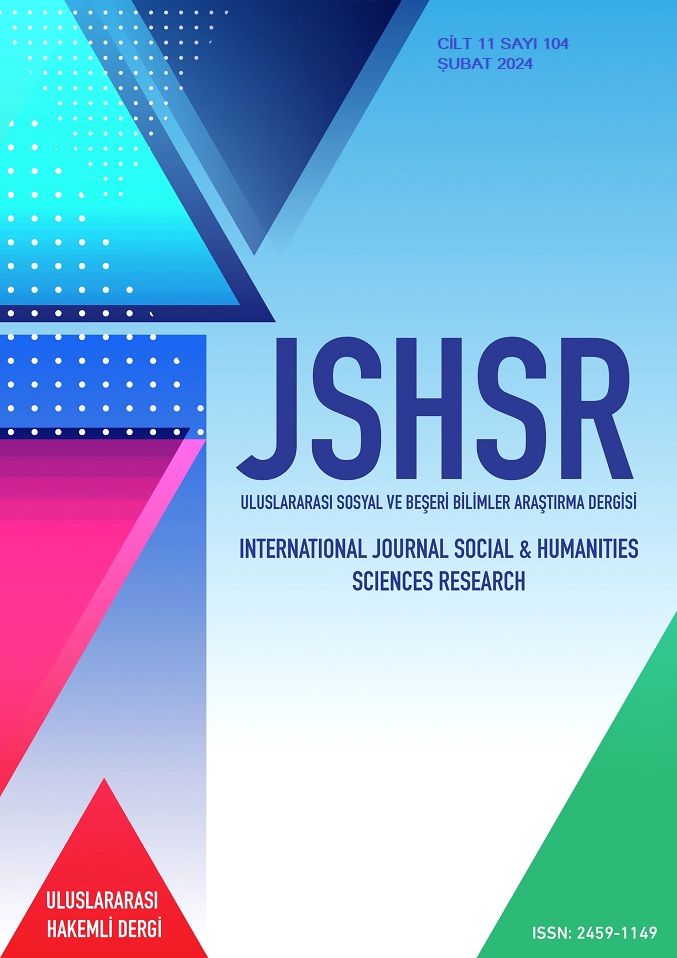Social Learning
DOI:
https://doi.org/10.5281/zenodo.10775104Keywords:
Social learning, modeling, imitationAbstract
In the preparation of this study, the literature review method, which is a qualitative research method, was used. For this reason, various books and magazines on the subject were used. The purpose of this study is to present general information about social learning theory, one of the learning theories. Social learning theory is a learning theory that contains important principles for acquiring knowledge, behaviors and attitudes. Knowing information about this theory, in other words, having awareness about this theory, is of great importance for both educators and other people. 'Modelling', one of the most basic elements of this theory is important for educators for their students and for parents for their children. Because if educators introduce people who will be good role models for their students, and parents for their children, and keep these role models on the agenda, the likelihood of individuals taking people with positive personalities as role models, rather than people with negative personalities, will increase. It also has an important place in terms of providing knowledge and behavior without experience. For example, if a person sees that people who fight are in a bad situation, the likelihood of fighting will decrease. Or, if a person who does good to someone sees that he is appreciated by society, the likelihood of him acting in a similar way will increase. However, it may also have some negative returns. For example, if a person sees someone stuck in an elevator and is afraid, he or she may experience elevator-related fear, even though it is not his or her own experience.
References
Arı, R. (2008). Eğitim Psikolojisi. Nobel Yayın Dağıtım.
Bayrakçı, M. (2007). Sosyal öğrenme kuramı ve eğitimde uygulanması. Sakarya Üniversitesi Eğitim Fakültesi Dergisi. (14) , 198-210
Gültekin, M. (2019). Sosyal Bilişsel Öğrenme Kuramı. Öğrenme Öğretme Kuram ve Yaklaşımları. (Editör. Behçet Oral). Pegem Akademi.
Grusec, JE (1994). Sosyal öğrenme teorisi ve gelişim psikolojisi: Robert R. Sears ve Albert Bandura'nın mirasları. RD Parke, PAOrnstein, JJRieser ve C. Zahn-Waxler (Ed.), A Century of DevelopmentalPsychology (s. 473-497). Amerika Psikoloji Derneği.
Korkmaz, İ. (2006). Sosyal Öğrenme Kuramı. Eğitim Psikolojisi: Gelişim-Öğrenme-Öğretim. (Ed. Binnur Yeşilyaprak). Pegem Akademi.
Malone, Y. (2002). Socialcognitivetheoryandchoicetheory: A Compatibility Analysis. International Journal of RealityTherapy. 22 (1), 10-13.
Seçer, Z. ve Sarı, H. (2006). Okul öncesi eğitim kurumlarına devam eden ve etmeyen çocukların ahlaki ve sosyal kural bilgilerinin çeşitli değişkenler açısından karşılaştırmalı olarak analizi. Milli Eğitim Dergisi, 35(172), 126-142.
Senemoğlu, N. (2007). Gelişim öğrenme ve öğretim kuramdan uygulamaya. Gazi Kitabevi
Solmuş, T. (2004). İş yaşamı, denetim odağı ve beş faktörlü kişilik modeli. Türk Psikoloji Bülteni, 10, 196-205.
Tatlıcıoğlu, S. S. (2021). Öğrenmeye sosyal- bilişsel bir bakış: Albert Bandura. Anadolu Üniversitesi, Sosyal Bilimler Enstitüsü Dergisi. 5 (1), 15-30.
Yıldız, Z. (2014). Sosyal bilişsel öğrenme kuramı ve din öğretimi. Süleyman Demirel Üniversitesi İlahiyat Fakültesi Dergisi, 2, 147-161
Wikipedia (t.y.). Albert Bansdura. https://tr.wikipedia.org/wiki/Albert_Bandura
Downloads
Published
How to Cite
Issue
Section
License
Copyright (c) 2024 INTERNATIONAL JOURNAL OF SOCIAL HUMANITIES SCIENCES RESEARCH

This work is licensed under a Creative Commons Attribution 4.0 International License.


